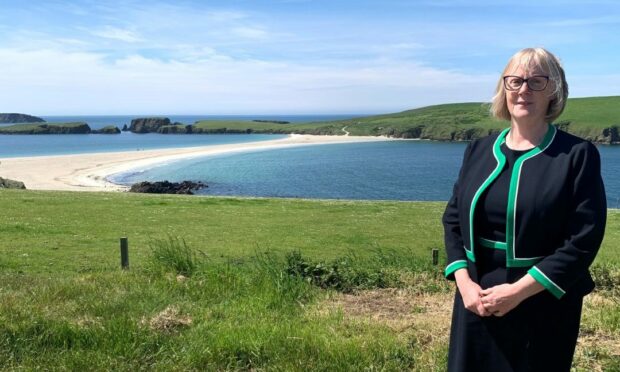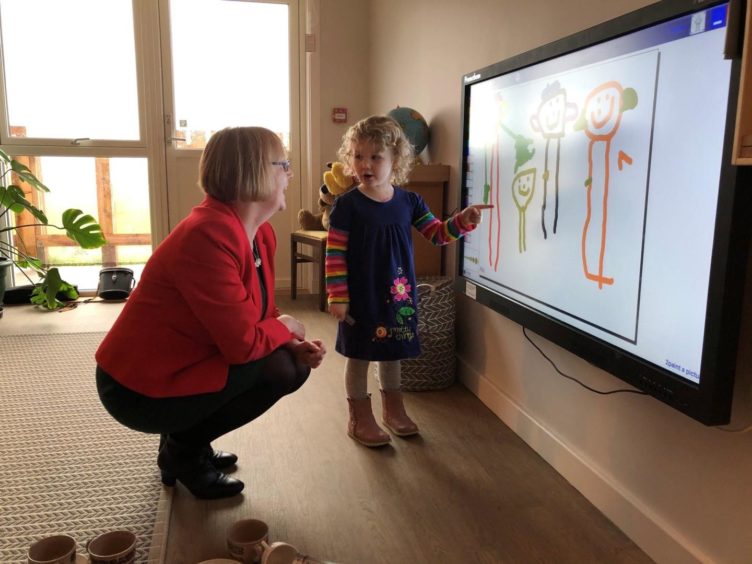The Shetland education director believes a sustained community approach will give children the best chance to succeed, on or off the islands.
Shetland’s Director of Children’s Services Helen Budge is proud of the work in her department. As a rural, remote local authority there are many challenges that mainland areas don’t face.
Attracting young families, retaining workers and encouraging students to return after higher education or work experience are all priorities in Shetland. But Mrs Budge said that Shetland exerts a natural “pull” on locals.
Mrs Budge, 55, was “born and bred” in Shetland. She attended Dunrossness Primary, Sandwick Junior High and Anderson High School. After earning her education degree from Edinburgh’s Moray House College of Education, Shetland was the only destination on her mind.
She thinks islanders will always have a reason to come back home, as she once did. Her job as Shetland’s education director, she said, is to make sure children have everything they need to decide for themselves.
Clear priorities for helping children and families
A small, outlying local authority might be tempted to try to keep residents and resource in the region as much as possible. But Mrs Budge said that she believes the education system in Shetland needs to encourage children to make their own path.
“I think Shetland is quite outward-looking. And I think our young folk have always been quite keen to be independent.
“We want them to recognize they’re part of a really strong community. But we also encourage them to blossom and to grow and choose the route that’s best for them.”

She outlined five key priorities for her department:
- Early learning and childcare
- Mental health and emotional well-being
- Sustaining education in rural communities
- Employability
- The Promise “that every child grows up loved, safe and respected, able to realise their full potential”
Pooling resources to support the entire family
Mrs Budge said that support from the council and the structure of the children’s services department–which includes social services, libraries, sports and leisure and education–helps her team quickly recognize the needs of Shetland’s families.
“With that integration, we are really working with the child within the context of the family within the context of the community.
“It means that the early intervention work is very much integrated. With some of our more vulnerable young folk or families, we are able to be in there quickly to support them.
“One of the strengths for Shetland is that we are able to do a lot of early intervention work.”
Connectivity and emotional support resources offer room to improve
Bringing broadband capabilities to all families is one of the ongoing missions in Shetland. Mrs Budge said that she and her department identified gaps during the pandemic, and work is being done to close them.
“One of the improvements that we would like to see is full digital connectivity for all of Shetland, in a way that everyone here can use it as well as in the rest of Scotland.
“We’re continuing to develop and improve that system of connections, but we’re not there yet. The digital delivery of education has grown in the last few years and there are great opportunities there.”
All about children finding their voice
But when it comes down to it, Mrs Budge believes that the children of Shetland should be equipped to carve out their path in the world.
“We really want to see our bairns do the absolute best they can. It’s about giving them the chance to make their own choices and have their independence.
“With the skills and knowledge they learn in our system, they can make informed choices.”

